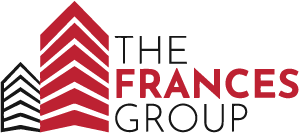California lawmakers introduced a series of bills to limit high development fees charged by cities and counties that can add tens of thousands of dollars to the price of a new home or apartment, the state’s latest attempt to jump start construction and ease the housing shortage.

Five California Assembly Democrats representing districts in Southern California and the San Francisco Bay Area that have some of the nation’s most expensive housing introduced the eight bills to reduce so-called development impact fees levied by cities to help fund schools, parks, roads and other infrastructure needed to support new housing.
A University of California, Berkeley, Terner Center for Housing Innovation study of 10 California cities last year found that while development fees can represent up to 18% of the median cost of a new home in some areas, with developers paying as much as $19,100 per apartment unit and up to $29,600 in fees for each single-family home built.

California has some of the nation’s highest levels of homelessness, exacerbated by a shortage of 1.1 million homes for extremely low-income renters, according to the National Low Income Housing Coalition. State policies that restrict local taxes, such as 1978’s Proposition 13, which caps annual property tax increases at 2% and allow valuation reassessments only when properties are sold, have led local governments to increasingly rely on development fees to pay the shortfall in infrastructure funding.
The fees make housing and other development in California prohibitively expensive, said Assemblyman David Chiu, who introduced Assembly Bill 3148, which is aimed at reducing impact fees on affordable housing units built using the state’s density bonus, a program allowing for higher density and additional units in projects that include affordable housing.
“During the worst housing crisis in California’s history, when housing units can cost upwards of $800,000 per door in my city of San Francisco, impact fees can account for up to one-sixth of the cost of each unit. We have to think differently,” said Chiu, who led the successful effort to pass a statewide rent control law last year.
Chiu’s bill would reduce fees on housing units built for very-low-income residents by 75%, units built for low-income residents by 50% and units built for moderate-income residents by 25%. Chiu expects the bill to be taken up this spring in the Assembly Housing and Community Development Committee.
State and local lawmakers have sought with varying degrees of success to address the growing statewide affordability crisis through development- and zoning density-related changes aimed at boosting production.
Senate Bill 50, the highest-profile and most-sweeping state housing production proposal that sought to encourage multifamily construction near public transit by overriding local zoning laws, failed for the third year to advance in the Legislature in January.
California Gov. Gavin Newsom in October signed 18 measures into law designed to help jump-start housing production, including Senate Bill 13, which prohibits impact fees placed on most accessory units and eases other requirements. Newsom also signed Senate Bill 330 by Democratic state Sen. Nancy Skinner of Berkeley. Skinner’s bill was designed to speed housing construction by cutting the time it takes to obtain building permits, limiting fees on new housing development and barring some housing caps imposed by local governments.
The governor this month called on lawmakers to create permanent funding and help clear delays on construction of homeless shelters and supportive housing for the estimated 150,000 Californians living in the streets.
The package introduced Monday is “the next wave of legislation that will help to build more housing throughout California by addressing development fees that can significantly raise the cost of housing,” said Assemblyman Tim Grayson of Concord, whose Assembly Bill 1924 would require cities to assess fees on a per-square-foot basis, giving developers the option to build smaller and more affordable units without being penalized with multiple fees.
Grayson and Rob Bonta of Oakland introduced Assembly Bill 3146, aimed at gathering data and statistics from local jurisdictions to help strategically address the housing crisis. Grayson’s AB 3144 would provide state funding to reimburse local governments that waive impact fees on affordable projects, and his AB 3145 would establish a ceiling for fees based on the median home price in a city or county. Jurisdictions that exceed the ceiling would be required to seek approval from the state Department of Housing and Community Development.
Jesse Gabriel of the San Fernando Valley in Los Angeles introduced Assembly Bill 3147, aimed at ensuring that developers that pay a fee they consider to be unreasonably high can continue construction as they negotiate for a more reasonable amount. San Diego Assemblyman Todd Gloria’s 3149 would update the way that local agencies notify interested parties prior to levying a new fee or service charge or prior to approving an increase in an existing fee or service charge.
Author Credit: Randyl Drummer, CoStar
